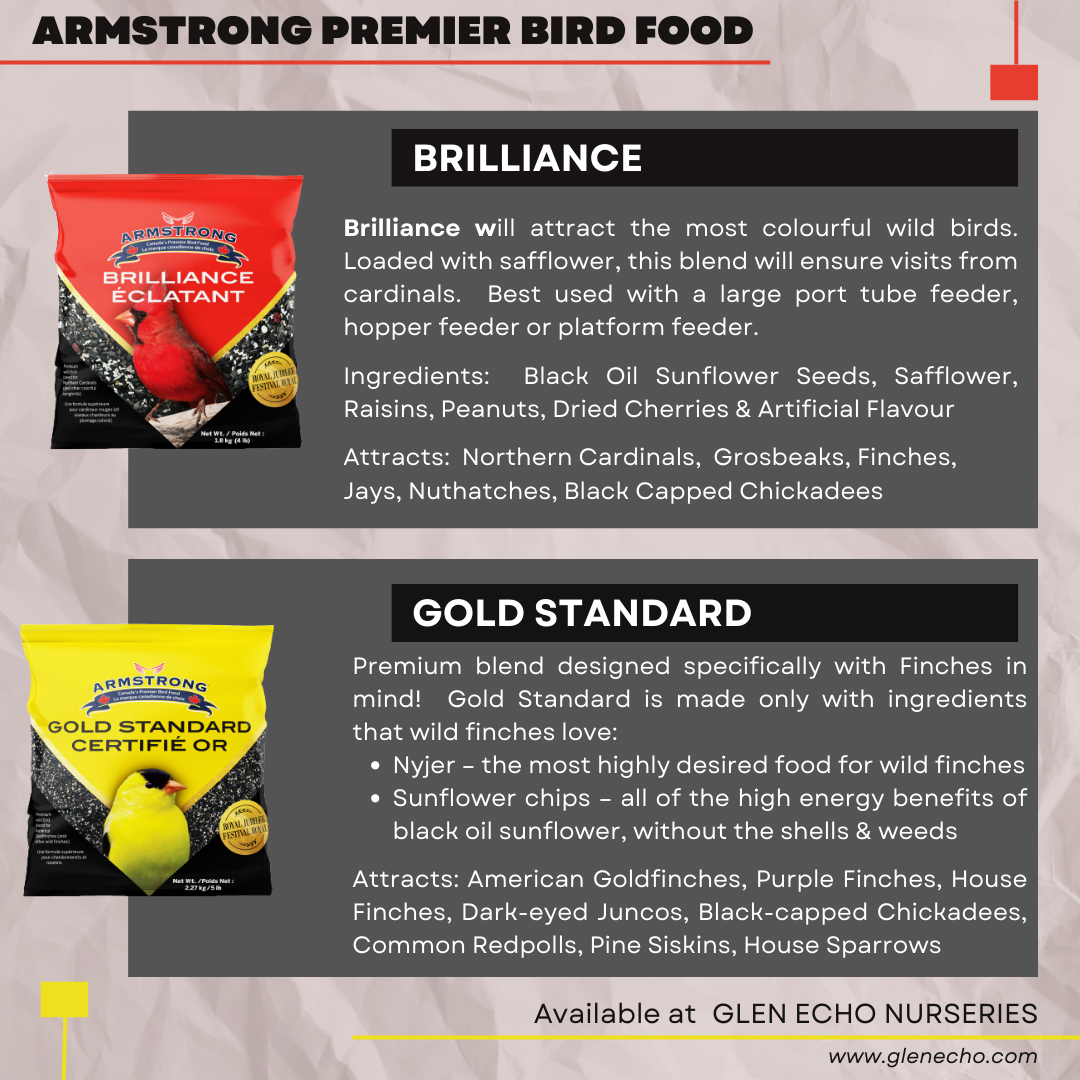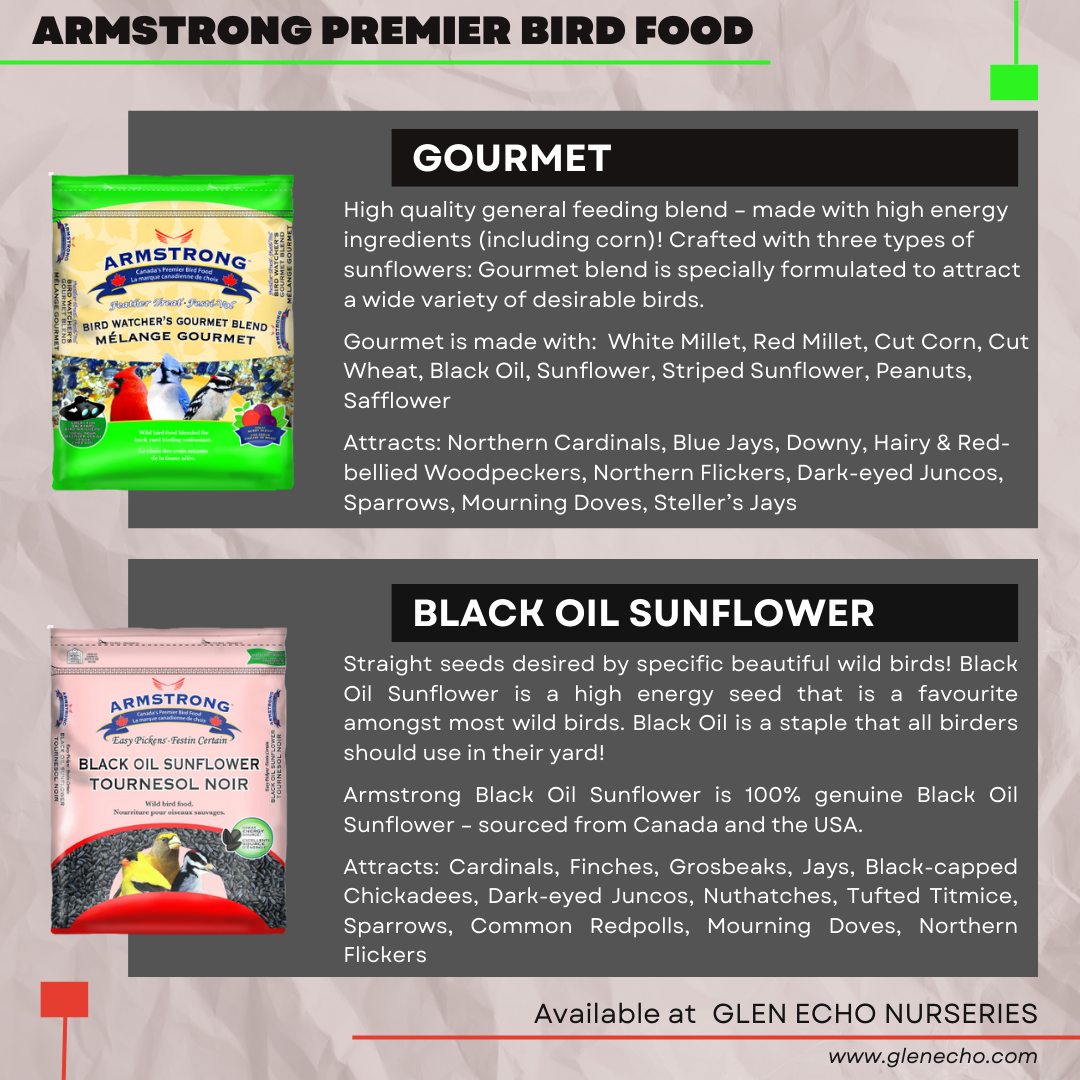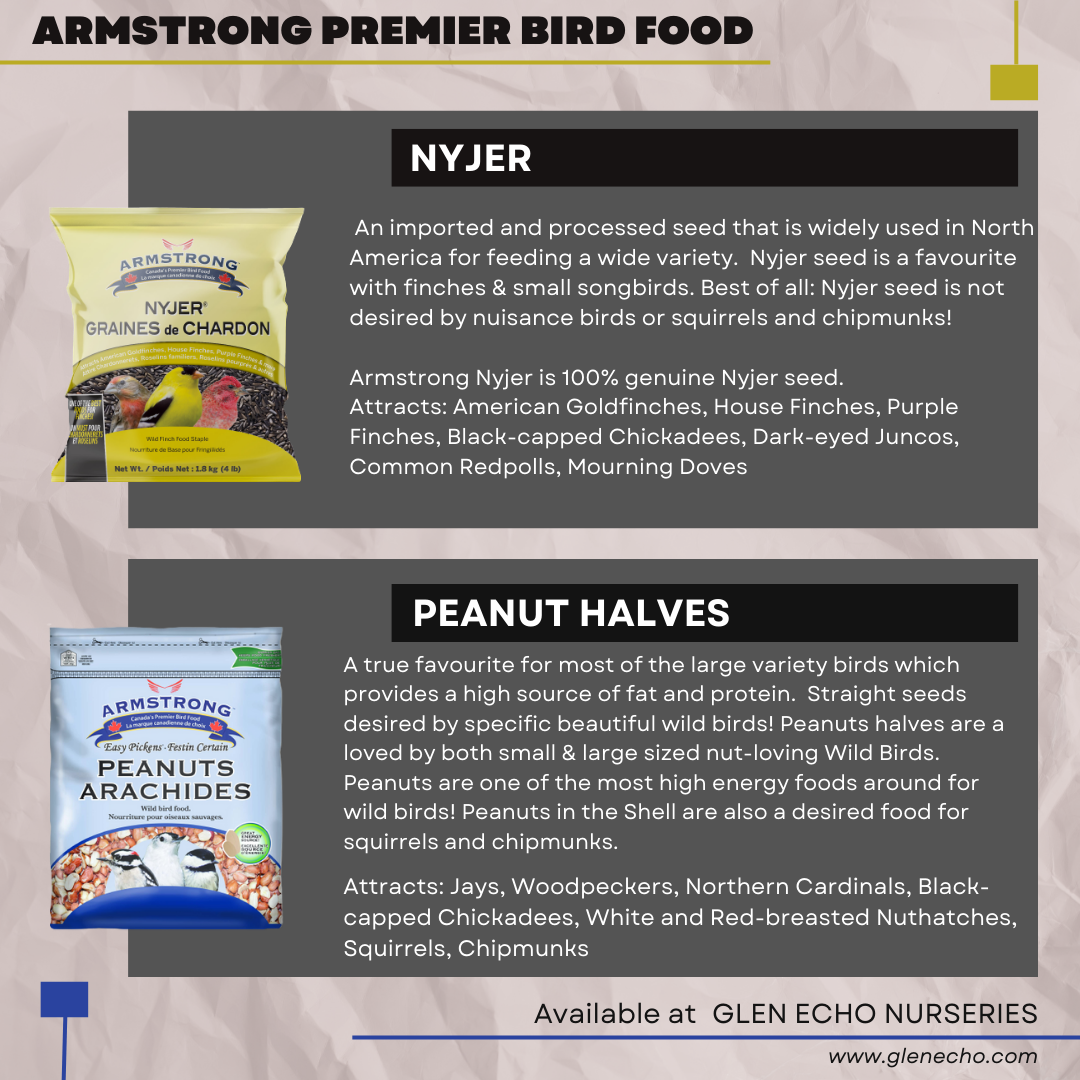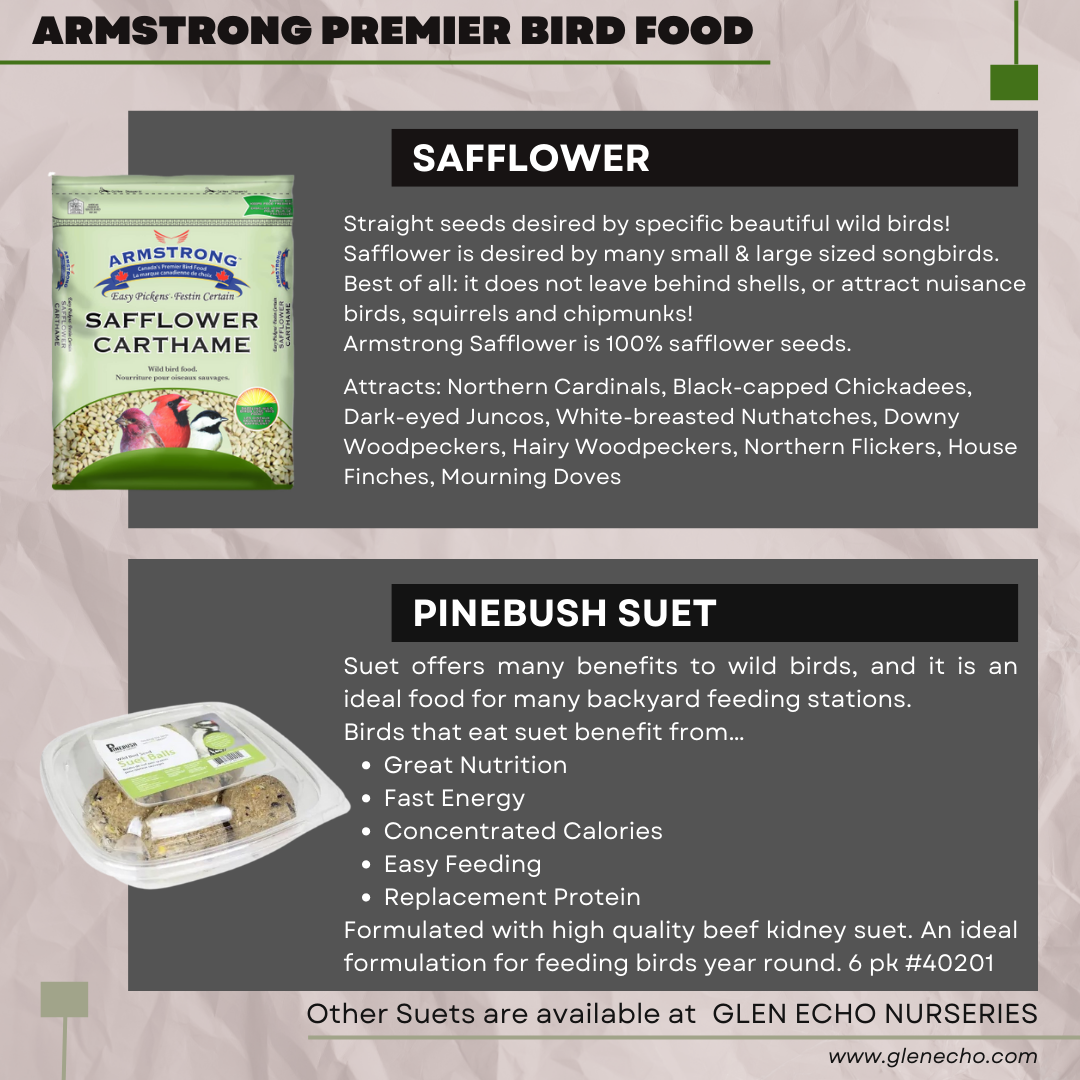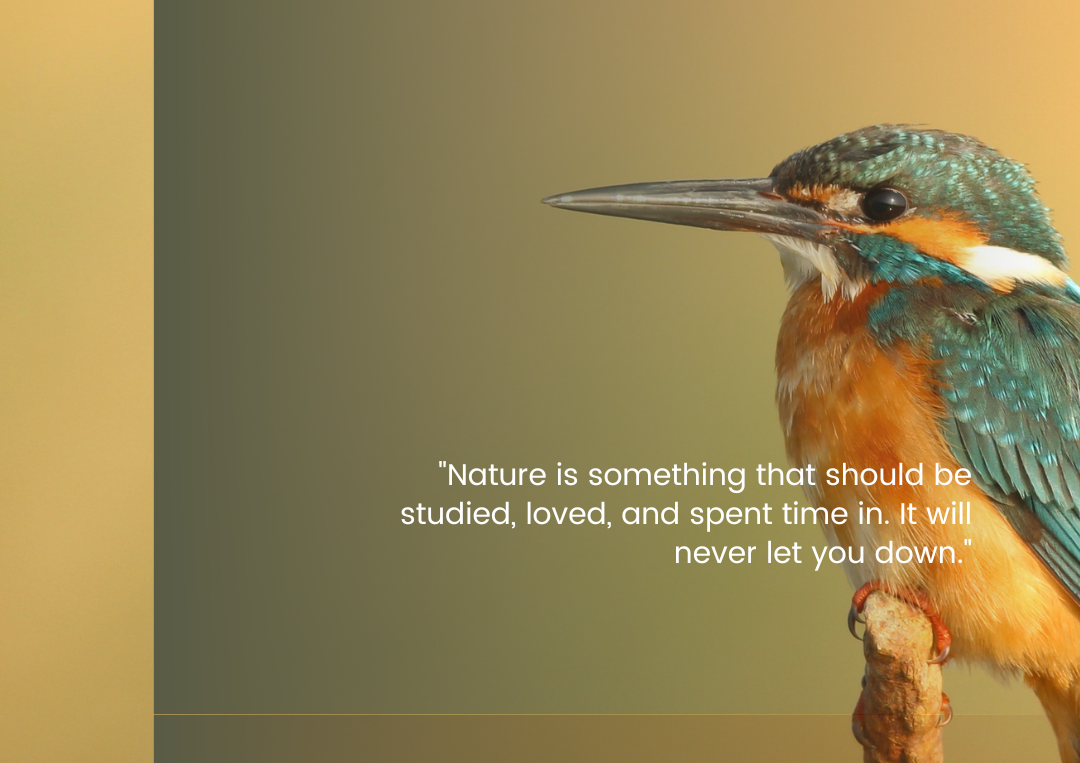Designed With The Right Birds In Mind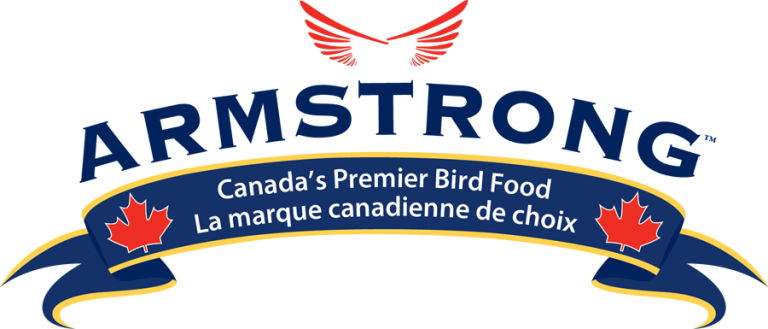
Armstrong prides itself on our expertise about North American Wild Birds. They know the right birds that are common at backyard bird feeders. And they know the right foods they enjoy eating the most!
When it comes to general backyard birds, it’s fine to offer these supplements. During times of extreme weather, studies show that extra bird food can provide a nutritional boost and provide a helping hand.
That said, the best way to feed the birds is to create a bird-friendly habitat with natural food with native trees and shrubs.
Beyond the natural habitat, it’s important to:
- Feed safe, appropriate food for birds. See our chart below. NEVER feed bread which not only provides little nutrition but also may cause an unhealthy condition referred to as “angel wing.”
- Clean bird feeders. Owning a bird feeder is a responsibility. Properly clean to avoid the spread of viruses and parasites.
- Do not feed birds if it significantly changes their behavior (example, aggressive birds such as seagulls, endangered birds such as snow owls, etc.).
Your reward is the opportunity to attract some feathered friends to your backyard and garden—and enjoy watching wild birds from your window!
What little food that is available can get buried under deep snow. The bird feeder that you place in your backyard aides the survival of birds in harsh winters.
Wild Bird Food Preferences
For most wild birds, seeds are the best source of high energy food for wild birds. (Do not feed birds bread.)
The seed that attracts the widest variety of birds, and so the mainstay for most backyard bird feeders, is sunflower. Other varieties of seed can help attract different types of birds to round out your backyard visitors. The important thing is to make sure you have a high-quality seed mis, and not one full of fillers. In general, mixtures that contain red millet, oats, and other “fillers” are not attractive to most birds and can lead to a lot of waste as the birds sort through the mix.

Suet offers many benefits to wild birds, and it is an ideal food for many backyard feeding stations. Birds that eat suet benefit from…
- Great Nutrition – Suet is high in fat and protein, as well as extra nutrients and minerals depending on what mix-ins are part of each specific blend. This is wonderful nutrition for both adult and immature birds.
- Fast Energy – Because suet is bursting with calories from fat, it is a quick source of energy for active birds. The refined fat in suet is also easily digestible, allowing birds to quickly convert the fat into usable energy.
- Concentrated Calories – Since suet is primarily fat, its energy is concentrated. This gives birds more energy even while eating less, which gives them more time for preening and other activities instead of foraging for less-efficient food.
- Easy Feeding – With no hulls to crack, rinds to peel away, or prey to hunt, suet is an easy food for birds to quickly grab from a feeding station. The extra time can be spent preening, caring for chicks, or chasing off intruders.
- Replacement Protein – Just when insects are scarce, suet can provide supplemental protein for insect-eating birds that may have trouble finding food. This is especially critical in the fall and winter months for many resident birds.
